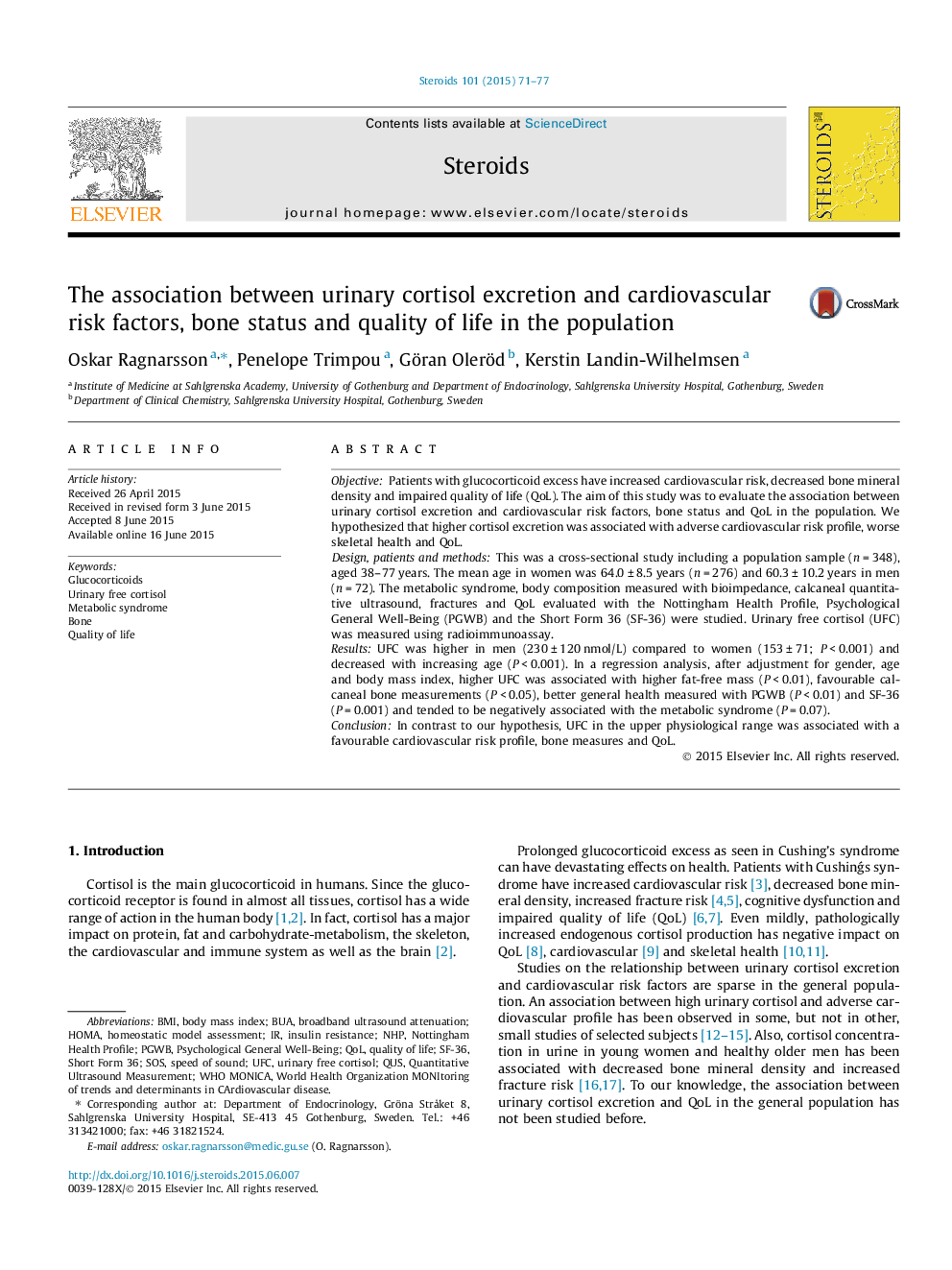| Article ID | Journal | Published Year | Pages | File Type |
|---|---|---|---|---|
| 2027652 | Steroids | 2015 | 7 Pages |
•Urinary free cortisol is higher in men compared to women and decreases with increasing age.•High normal cortisol excretion is associated with favourable cardiovascular risk profile, bone measures and quality of life.•Cortisol in the upper physiological range has an anabolic effect and corroborates its role as necessity of life.
ObjectivePatients with glucocorticoid excess have increased cardiovascular risk, decreased bone mineral density and impaired quality of life (QoL). The aim of this study was to evaluate the association between urinary cortisol excretion and cardiovascular risk factors, bone status and QoL in the population. We hypothesized that higher cortisol excretion was associated with adverse cardiovascular risk profile, worse skeletal health and QoL.Design, patients and methodsThis was a cross-sectional study including a population sample (n = 348), aged 38–77 years. The mean age in women was 64.0 ± 8.5 years (n = 276) and 60.3 ± 10.2 years in men (n = 72). The metabolic syndrome, body composition measured with bioimpedance, calcaneal quantitative ultrasound, fractures and QoL evaluated with the Nottingham Health Profile, Psychological General Well-Being (PGWB) and the Short Form 36 (SF-36) were studied. Urinary free cortisol (UFC) was measured using radioimmunoassay.ResultsUFC was higher in men (230 ± 120 nmol/L) compared to women (153 ± 71; P < 0.001) and decreased with increasing age (P < 0.001). In a regression analysis, after adjustment for gender, age and body mass index, higher UFC was associated with higher fat-free mass (P < 0.01), favourable calcaneal bone measurements (P < 0.05), better general health measured with PGWB (P < 0.01) and SF-36 (P = 0.001) and tended to be negatively associated with the metabolic syndrome (P = 0.07).ConclusionIn contrast to our hypothesis, UFC in the upper physiological range was associated with a favourable cardiovascular risk profile, bone measures and QoL.
